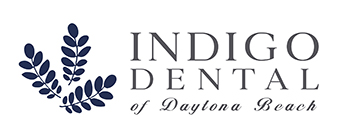Post Op Instructions
The first 24 hours following surgery are the most critical in determining how comfortable you will be, how quickly you will heal, and your risk of infection or complications with healing. Anything that disturbs or delays the formation of the fragile blood clots that are present can result in these complications. The following Do’s and Don’ts are all aimed at allowing the healing process to get started.
Do
- Get plenty of rest and keep your physical activity to a minimum.
- Drink lots of water.
- Stick to a soft diet such as thick soup, ground beef, well-cooked vegetables, eggs, etc.
Do Not
- Use any tobacco products. This is very important!
- Drink carbonated beverages. The bubbles dissolve the blood clot.
- Drink alcohol. It causes blood vessels to expand and bleed more easily.
- Drink through a straw. The suction can induce bleeding.
- Drink hot beverages like coffee or tea. The heat dilates blood vessels.
- Forcefully rinse your mouth out.
- Skip any meals. Your body needs nutrition to heal!
What to Expect and What to do About it
Bleeding. Some oozing during the first day following surgery is not unusual. After your tooth was removed, a gauze compress was placed and you were instructed to keep your jaws firmly closed for one hour. You can throw away the compress after the bleeding has stopped. If slight bleeding continues, place a fresh, clean, folded, and wet gauze on the bleeding area so that it makes pressure when the jaws are closed. Repeat as needed.
Swelling. This is a normal response to injury and will always be present to some extent. Swelling will typically reach a peak after 24 hours. Some dark, discoloration on the cheek or face may also be present. After all numbness from the anesthesia has worn off (2-4 hours), place some ice in a plastic bag or ice pack and wrap with a dry towel. Apply to the outside of the face for 20 minutes. Reapply after another 20 minutes and repeat as needed. After the first day, apply a warm, moist compress to the affected area.
Pain. The amount of discomfort you experience depends on many factors including the extent of the surgery, location of the surgical site, and the pain threshold of each individual. Discomfort is much easier to manage if medication is taken before the symptoms become severe. Ibuprofen (Motrin, Advil) and related pain relievers are very effective. If stronger pain management is needed, take the prescription medication that may have been provided to you.
Swelling and pain that increase after 48 hours, fever, or difficulty breathing or swallowing are signs of a possible infection. If you have any concerns, call the office at (386) 243-2388 or contact the doctor on his cell phone at (386) 795-7535.
